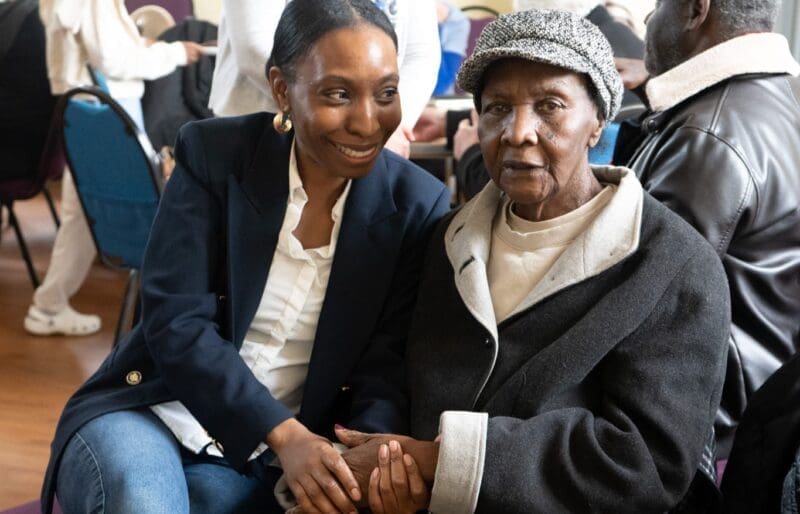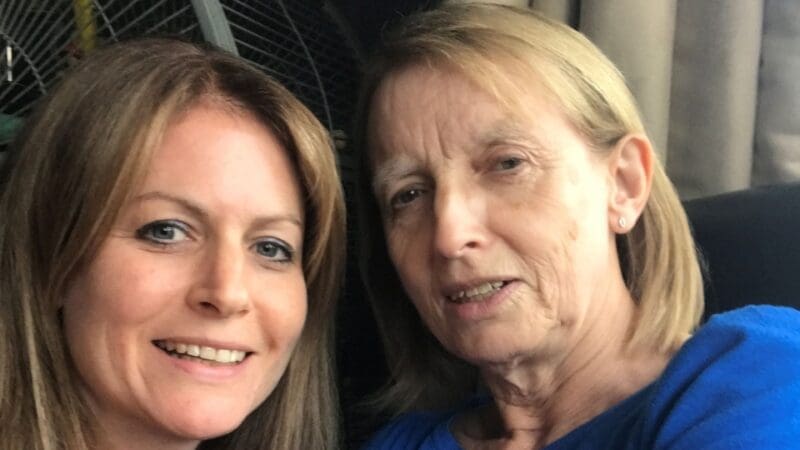
“I couldn’t find a dementia community, so I created one”
When Michaela’s grandmother, Vanda, was diagnosed with vascular dementia, she dedicated herself to creating a place where dementia wasn’t a taboo subject.
Early on in the pandemic, we saw the impact of multiple discharges from the NHS into care homes. Rapid discharges without testing availability and asymptomatic transmission led to multiple infections in care homes for both residents and staff. We also know that infection control processes are less straightforward in care home environments. It is not uncommon, particularly during the winter, to see rapid discharges from hospitals to manage capacity, but the scale and speed of the discharges was truly unprecedented. We need to fully understand the relationship between NHS capacity and care home occupancy. Both are reliant on each other to function – yet it is often not an easy relationship, and in crisis, things such as discharge planning get overlooked. This needs to change, and it is crucial that we have health and social care working closely when transitions in and out of hospital occur.
Visiting has also been significantly impacted through the pandemic. There have been so many heart-breaking accounts about the impact of not being able to see the people we love. At Dementia UK, we have used our clinical understanding to bring care home providers, families and local public health together to design safe and effective plans to enable visiting to resume.
We know the impact that a lack of social contact can have and we also understand the impact that families have on providing essential care to their loved ones in a care home; we have tried to balance that with the need for good infection control measures and compassion. This is where policy should step in to build consensus and connection through planning. This has been a gap throughout the pandemic and whilst we are starting to see more understanding and compassion on behalf of policy makers, we have yet to see sensible safe visiting plans that support families to reconnect with those they love.
Getting a diagnosis of dementia has been patchy across the UK for a while; this issue has been one that various dementia strategies have tried to change with some success. Diagnosis rates have been hit hard by Covid-19 with services having to reduce their diagnostic assessments – with some closing altogether – and others providing remote diagnosis. This has led to thousands of families stuck in limbo; understanding that something is wrong but unable to get access to a diagnosis and post-diagnostic support. Getting a diagnosis has been one of the main reasons for calls to our Admiral Nurse Dementia Helpline. In these calls we hear the fear, uncertainty and the emotional toll this is placing on families. We do need to prioritise diagnosis as the country opens up, in anticipation of a backlog of anxiety and an increased demand for post-diagnostic services. Any plan to achieve this needs to be well-resourced, coordinated and integrated into a wide range of ongoing support services that families need to be able to care for those they love.
We have witnessed such a high level of mortality in dementia care. However, behind the data are human beings who are grieving. The scale of the grief is much bigger than can first be expected; many families have had their final goodbye to a loved one taken away from them due to visiting restrictions. This will require understanding and support on a scale that will challenge services. We need to ensure that we recognise just how traumatised and emotional families are, providing highly sensitive psychological support to help them work through their grief.
It isn’t just families though that will need ongoing help – our workforces need this too. As professionals we have faced increased demand, complexity and death at such a pace. We should therefore do everything we can to provide ongoing support and resources to help them cope with the trauma of these times.
At Dementia UK, we describe lasting impact of Covid-19 as the ‘long tail’. It will be felt much longer in dementia care than for some other aspects of society; we need to understand and be ready to handle issues that linger. Covid-19 should challenge us to be better in our societal approach to dementia than we have been. Fault lines have been exposed that we have avoided for too long.
We owe it to people with dementia, their families and the workforce to radically overhaul the way we approach dementia care in the UK, so that in the future we can avoid being hardest hit- we know now the consequences, if we don’t rethink our approach.
Our virtual clinics give you the chance to discuss any questions or concerns with a dementia specialist Admiral Nurse by phone or video call, at a time that suits you.

When Michaela’s grandmother, Vanda, was diagnosed with vascular dementia, she dedicated herself to creating a place where dementia wasn’t a taboo subject.

As a palliative care nurse, Jenny reflects on the importance of empathy during end of life care and how her Admiral Nurse helped her family prepare for her Mum's death.

When Rosie’s mum, Dawnie, was diagnosed with young onset Alzheimer’s disease, her employer ensured caring responsibilities were fully supported.